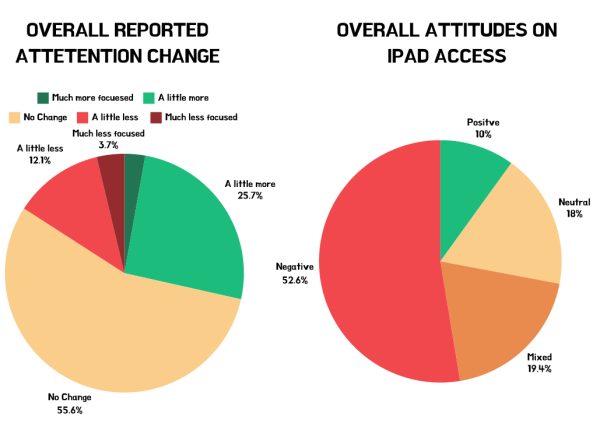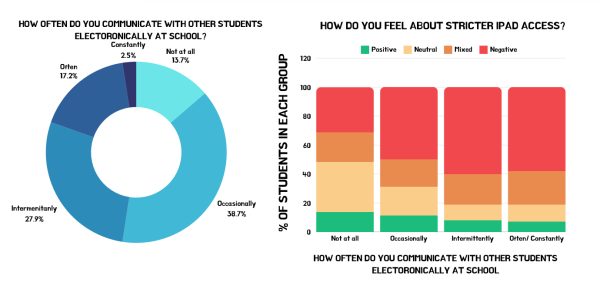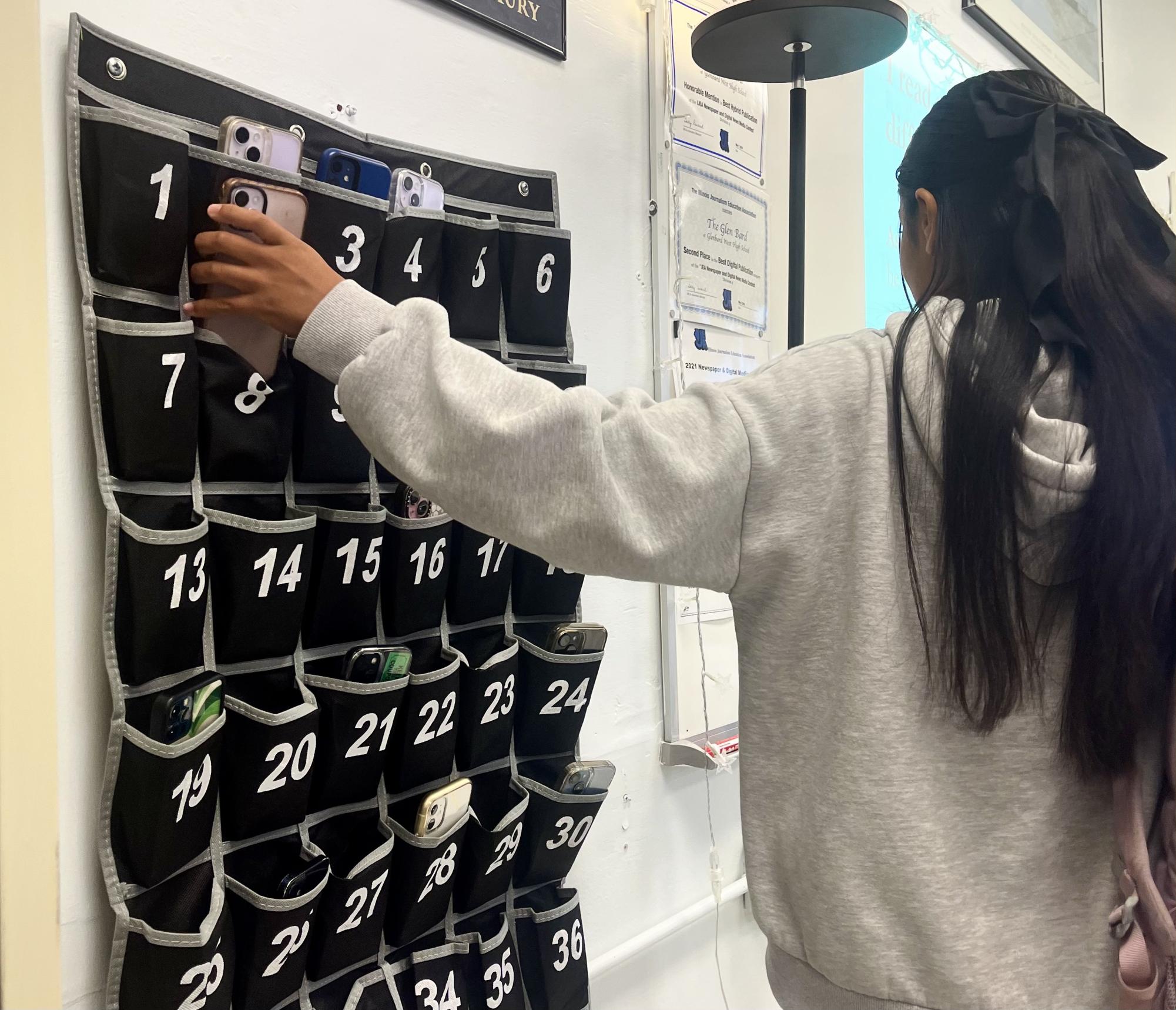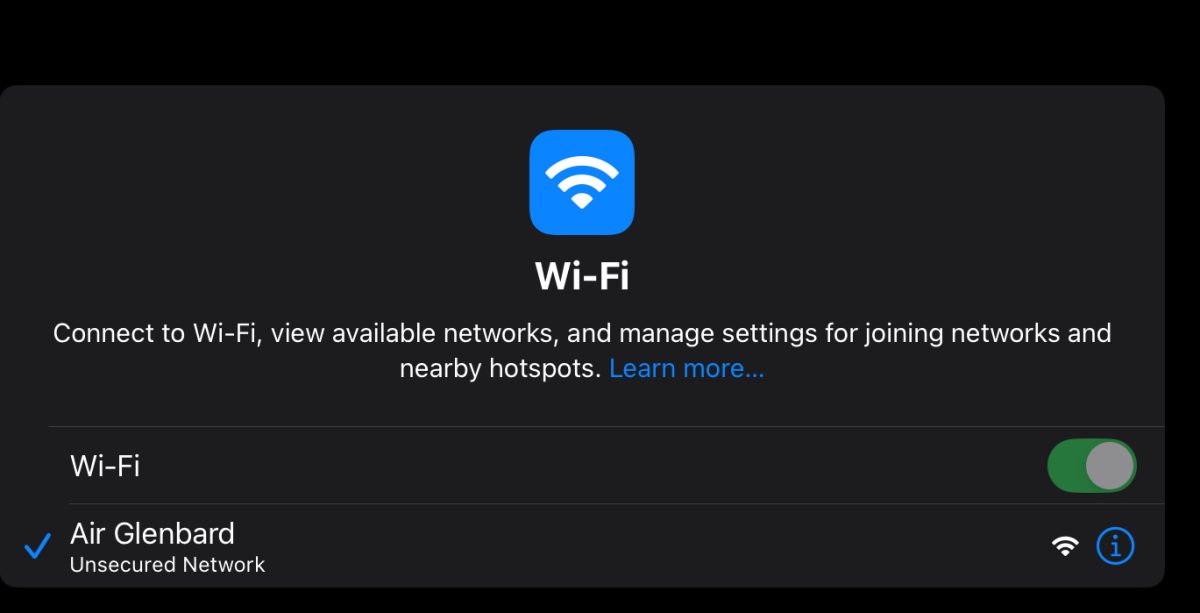In an attempt to curb digital distractions, West has shortened the reins this year on student technology usage both on school-issued iPads by filtering non-educational content and expecting “that cell phones and earbuds are not visible or in use while students are in the classroom” as stated in the principal’s August newsletter. Over a month into the new practices, many teachers breathe a sigh of relief, while students give mixed reviews.
This change prompted an end of year staff survey in which 87% of West staff agreed or strongly agreed that cell phones are a major impediment to student learning in the classroom. Approximately 75% of staff members reported spending a significant amount of time redirecting students. The majority supported a stricter cell phone policy, according to Glenbard West Principal Ben Peterselli.
To combat the problem, forty staff members formed a committee over the summer to review research solutions and coordinate a shared, school-wide standard regarding technology in the classroom. They focused on having consistent policies throughout the building concerning cell phones and settled on the pocket holders as a new tool that every classroom is now equipped with. A number of students have taken to calling them ‘phone jails.’ The committee decided that whether the pocket holders are used is up to teachers. Some teachers require that students put their phones in a pocket at the start of class, while others only ask that personal devices be put completely away during instructional time.
District 87 has simultaneously taken their aim at managing iPad usage across Glenbard schools. As of June 2024, once school devices are on campus, they are locked into the school’s Wi-Fi, Air Glenbard, and therefore subjected to content filtering that blocks most entertainment sites and services. Starting in early July, messaging and gaming apps have been disabled and only approved apps acquired from the Hub (a kind of AppStore for applications approved by the district) are available to download on school iPads.
Per West’s 2024-2025 Student Handbook, better known as the Castle Keys, school-issued iPads are considered property of the district and intended for educational use. They are also subject to supervision software and may be electronically monitored by school staff. This is nothing new, but the web filtration software has become stricter this year.
Executive Director for Teaching and Learning for District 87, Melissa Creech, says teachers “want their students to learn and [with] that pull of that game on the iPad, it’s just hard for students to focus if they can play that game or get on that website.”
English teacher Nessa Slowinski added that “overall there’s been more messaging that came out of that committee about, you know, just tech needs to be away. That’s a non-negotiable here at West and in the past when that was maybe a little bit looser in some areas of the building or in some classrooms, like, we’re not going to do that anymore. It needs to be away. There’s different means of putting them away … teachers have some choice around what that looks like, but we’re here to learn, and we’re here to engage with each other and not be distracted by our technology.”
Ms. Slowinski has already noticed social changes in her classroom and thinks “generally speaking, students have been far more kind of connected to what’s happening in the room and not distracted by the cell phone [and] … my classrooms are louder maybe than they would have been otherwise. I love that personally … because they’re socializing.”
Student reactions to these changes have been shown to be mixed in a survey conducted by The Glen Bard, which polled 214 students. Most students self-reported seeing little to no change in their attentiveness, but over a quarter said they saw an increase in focus.

Even though many students admitted that the new policy helps them to focus, over half still felt negatively about their iPads being restricted with around 40% of students having neutral or mixed reactions, with a small minority feeling positive about the change. Upperclassmen had the most proportionally negative responses. Freshmen mostly described stricter technology policies at their old schools, which could explain their generally more positive attitudes concerning the changes.
Students cited frustrations with being restricted in general, some report having difficulty communicating with other students. Direct messaging applications have been largely removed, as iMessage is now inaccessible and Google disabled its chat feature for underage and student accounts, so students have had to find other avenues to communicate. Some students are also annoyed that they are unable to access entertainment websites during breaks to decompress either at home or during breaks, and a number also reported experiencing anxiety when their phone was not near them.
85% of students polled said they still communicate with other students electronically during school hours. 99% of students reported that they bring a personal cell phone to school on most days. Those who communicate electronically often or constantly during school were twice as likely to have negative feelings about the new iPad restrictions than those who do not communicate digitally at all; those more communicative students were also half as likely to have a positive opinion about the restrictions.

Restrictions on cell phone use in schools are on the rise across the country, but they come in various forms. Some places ban cell phones only in the classroom (like West), others only allow them in free periods, and more require students to turn in their personal devices at the beginning of the day to be returned at the final bell.
The administration is well aware that these new practices will not eliminate digital or other distractions, but hope to minimize the issue as best they can.
Mr. Peterselli says that “I trust students to want to learn, but I don’t trust any of us to be able to combat effectively the addictive qualities of devices and social media especially.” He thinks that “if there are some limitations that we can put in place, I think that students, while they may moan and groan a little bit, understand that as adults it’s our job to try and help them focus and they can’t do it on their own.”



















